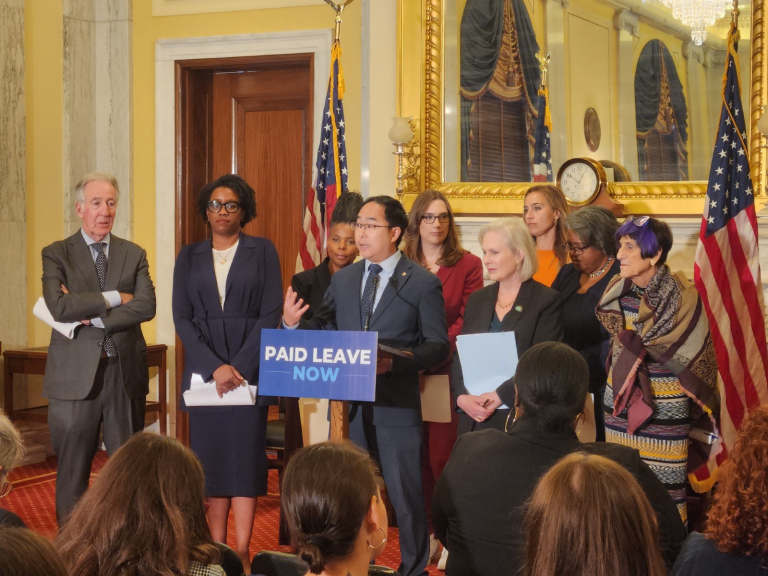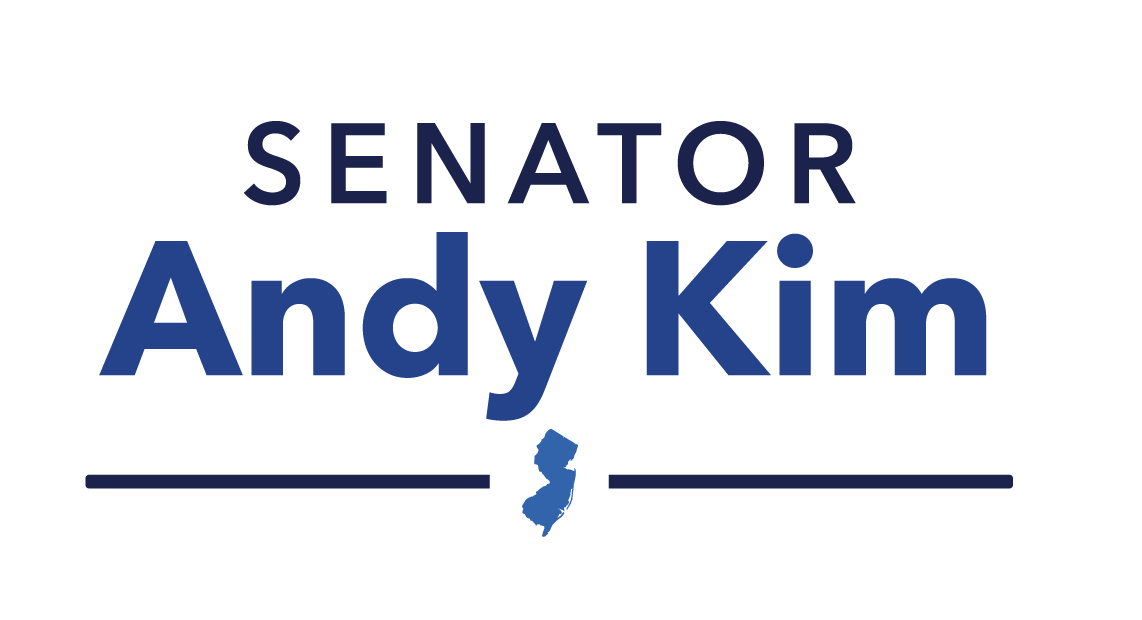Senator Kim Calls for Paid Leave NOW
September 16, 2025
WASHINGTON, D.C. – Today, Senator Kim stood with fellow Democratic colleagues in Congress and advocates to uplift the Family and Medical Insurance Leave (FAMILY) Act that would entitle every worker to family, medical, and caregiving leave benefit payments for up to 12 weeks of qualified leave.
While delivering remarks today at the U.S. Capitol, Senator Kim shared his own experience as a member of the “sandwich generation,” raising young children while also acting as the caregiver to an aging parent. “You shouldn’t have to choose between taking care of a sick kid and being able to have economic security,” said Senator Kim.
He continued: “We are the richest, most powerful country in the world. This is not about means. This is about political will.”

Watch a clip here of Senator Kim’s remarks here
(Access unedited footage of Senator Kim’s full remarks here)
Senator Kirsten Gillibrand (D-NY) and Congresswoman Rosa DeLauro (CT-03) are leading the reintroduction of the FAMILY Act to create a comprehensive national program administered by the Social Security Administration to guarantee all workers up to 12 weeks of paid parental, medical, and caregiving leave. Specific provisions include:
- Provide workers with up to 12 weeks of paid leave when they take time for their own serious health conditions, including pregnancy and childbirth recovery; the serious health condition of a family member; the birth or adoption of a child; to address the effects of domestic violence, sexual assault or stalking and/or to make certain arrangements arising from the military deployment of a spouse, child or parent.
- Enable the lowest-paid workers to earn up to 85 percent of their normal wages (up to $4,000 per month), with the typical full-time worker earning around two-thirds of their wages.
- Ensure that workers who have been at their job for more than 90 days have the right to be reinstated following their leave, and that all workers are protected from retaliation.
- Allow states with existing paid leave programs to continue administering them.
- Be administered through a new Office of Paid Family and Medical Leave.
New Jersey leads by example having established a state paid family and medical leave program in 2009 that helps working people, family, and businesses. In addition to supporting working parents, the paid leave program means older adults and disabled people can give and receive care, and makes the care workforce more resilient.
###
